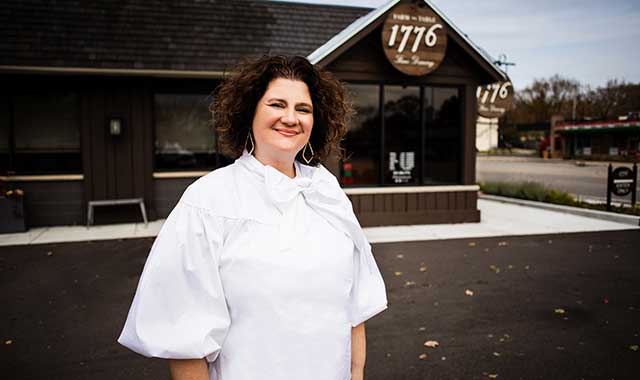Are you an expert in your field? Do you have a message that uniquely benefits people in your market? Then you’re well on your way to becoming a Subject Matter Expert.

From TED Talks to blogs, Subject Matter Experts (SMEs) are accessible 24/7 on every topic. Nationally, their names and messages are recognized and bantered about on social media, or at the coffee house and wine bar. Locally, many SMEs are available to meet very specific community and small-business needs. You’ve got experience, education, knowledge and stories to share. Are you a candidate to become an impactful SME?
Communities of people seeking help – in issues ranging from mildew removal to marketing strategies – want to learn from you. How can you be an SME?
First you need to be an expert. What do you know better than others around you? Career experience, knowledge, training and education, when packaged in a digestible form, can be attractive SME content. TED Talks are 18 minutes of pure passion prepared to catch your attention, address a common need and inspire. TED Talkers are broad in topic and geography. Yet people seek local heroes who understand local concerns. Can you personalize and localize your topic?
Subject Matter: Identify your niche subject matter. Confirm that you have the expertise to lead, coach and guide others. Continue to expand your knowledge. Then, work on articulating your expertise.
Expertise: Hone your message to be concise, precise and meaningful to the people seeking your knowledge. Use language that imprints an image in the mind that is difficult to erase. Pause before key pronouncements to capture the attention of your audience. If props are allowed, bring them and use them. Convert passive audiences into active ones with a call to action that resonates. Do your research to evaluate what people want to know about your topic, and constantly revise your comments so they’re relevant, current and trending.
Build Your Platform: Assembling your topic and talk is your first step. The second step is to construct the foundation for your speaking platform. Website, social media, search engine optimization, short bios, speaking synopses and referrals give your audience a way to find you and a reason to engage with you. Through this process, you should also have a clear strategic plan to convert your audiences into business opportunities.
Call to Action: Prepare your topic with recognized areas to extend the connection and increase involvement. What action do you want? Product sales, services delivered, subscriptions – how will you leverage the trust you instill as an SME into a business exchange?
Launch: Having built the foundation for your SME content, digital presence and call to action, be sure to attend to your personal image. Online blogging and personal speaking both require that you polish your image through credentials. Keep up-to-date with certifications, CEUs, licensing, etc. Leverage your recognized achievements with testimonials and referrals from clients, customers, vendors and audience members.
Revise, Revise, Revise: Continue to evolve your message, improve your value to your audience and deliver the end product or service to keep them returning and referring. Diligent attention to delivering unquestionable service and quality will keep your audience returning for your industry’s next big trend.
Offering your Subject Matter Expertise online or on the speaker’s circuit can introduce you to a continually expanded network of business contacts and leads. Your audience, once they trust your expertise, will rely on you for a variety of products or services, so long as the trust they put in you is reinforced.

Are you ready to be an SME?
Susan Dobbe-Leahy is president of Dobbe Marketing & PR Inc. Founded in 1989, this brand strategy agency leads businesses, organizations and municipalities to build brand image awareness and communication.



















































